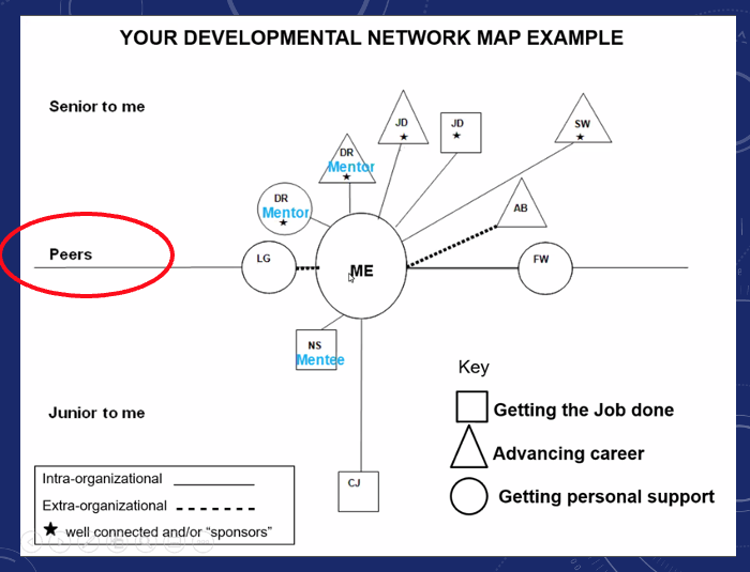Mentorship
Finding a mentor and/or mentoring team is key to academic success.
Mentorship Opportunities
There are many different mentorship opportunities available to faculty in the department. Clinical pairs (buddies) for new faculty, peer mentorship groups, research mentors and networking are among the different methods at the faculty’s discretion. Below are a few examples of mentorship opportunities in the department.
Dyadid mentorship
“Traditional” dyadid mentorship: 1:1 relationship with 1 senior and 1 junior individual where senior provides career development advice and support. We curate these pairings within the context of the annual career conferences, although many faculty form other natural mentoring relationships outside of these contexts as well.
Peer mentorship groups
Peer mentorship groups allow people from across divisions to come together to share and learn from one another. Peer mentorship is an excellent supplement to the traditional dyadic mentoring, where peers provide feedback to each other in a small group. These groups can also involve individuals at many career stages learning from each other, as they come together around a common interest. These groups also allow people in different clinical divisions to get to know each other, and help build community in the department. The faculty development team supports logistical planning for the peer mentorship groups (assisting with scheduling times, reserving rooms, helping with paperwork for reimbursement, any other logistical preparation needed).
Current peer mentorship groups are:
- QI: Facilitated by Dr. Marc Pimentel
- POCUS: Facilitated by Dr. Josh Finkel, Dr. Louisa Palmer, and Dr. Elizabeth Magdcyz
- Research: Facilitated by Dr. Alex Stone and Dr. Sergey Karamnov

New Faculty Group
The New Faculty Development Program is entering its 6th year! The New Faculty Group is comprised of faculty in their first two years in our department, and meets monthly. The purpose of this group and the program is threefold:
- To provide an opportunity to gather with other new faculty to discuss challenges associated with transitioning to this new role or new institution.
- To reflect on career aspirations and start to make long-term plans for academic career.
- To learn about opportunities within the Department for career development (in education, research, administration, etc.).
The content of the program is developed each year based on the interests of the group, but often includes discussions with various leaders from the Department.
Table of Contents
Contact Us
If you are interested in joining one of these groups or have an idea for another group you would be interested in, please either click the button below or email Faculty Development Project Manager, Adam Greenberg, at agreenberg@bwh.harvard.edu.

